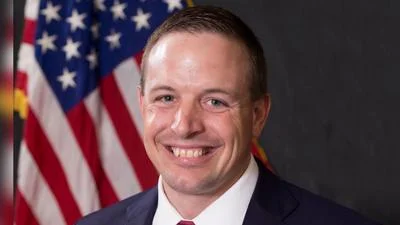Dan Knodl, Wisconsin State Representative for 24th District | Facebook
Dan Knodl, Wisconsin State Representative for 24th District | Facebook
According to the Wisconsin State Legislature's official website, the bill was described as follows: "various changes to the unemployment insurance law. (FE)".
The following is our breakdown, based on the actual bill text, and may include interpretation to clarify its provisions.
In essence, this bill enacts various changes to Wisconsin's unemployment insurance (UI) law, managed by the Department of Workforce Development (DWD). It stipulates that an employer can report to DWD if a claimant declines or fails to attend a job interview or work opportunity. DWD must consider these reports in evaluating the claimant's eligibility for benefits. The bill mandates weekly verification from claimants on job-related interactions and empowers DWD to investigate employer-submitted reports. The legislation makes the recovery of overpayments mandatory in cases of claimant misrepresentation. It prescribes methods for notifying claimants of legal obligations and introduces procedures for employers to report refusals of work. The bill also necessitates additions to DWD's annual UI fraud report, effective the first Sunday after publication, except for certain provisions effective 180 days post-publication.
The bill was co-authored by Senator Cory Tomczyk (Republican-29th District), Representative Elijah R. Behnke (Republican-6th District), Representative Barbara Dittrich (Republican-99th District), Representative Cindi Duchow (Republican-97th District), and Representative Chanz J. Green (Republican-74th District). It was co-sponsored by Senator Rachael Cabral-Guevara (Republican-19th District), Senator Chris Kapenga (Republican-33rd District), and Senator Howard L. Marklein (Republican-17th District), along with four other co-sponsors.
Daniel Knodl has co-authored or authored another 78 bills since the beginning of the 2025 session, with none of them being enacted.
Knodi, a Republican, was elected to the Wisconsin State Assembly in 2025 to represent the state's 24th Assembly district, replacing previous state representative Paul Melotik.
In Wisconsin, the legislative process starts when a senator, constituent, group, or agency proposes an idea for a bill. After drafting, the bill is introduced, numbered, and referred to a committee for review and public input. If approved, it moves through three readings and votes in both the Senate and Assembly. Once both chambers pass the same version, the bill goes to the governor, who can sign it, veto it, or let it become law without a signature. Only a small share of bills introduced each session ultimately become law. You can learn more about the Wisconsin legislative process here.
| Bill Number | Date Introduced | Short Description |
|---|---|---|
| AB169 | 04/08/2025 | Various changes to the unemployment insurance law. (FE) |
| AB134 | 03/13/2025 | The effective date of certain provisions contained in 2023 Wisconsin Act 126 |
| AB123 | 03/11/2025 | Calculation of miles for purposes of relocation of a child 100 miles or more from the other parent in an action affecting the family |
| AB102 | 03/03/2025 | Designating University of Wisconsin and technical college sports and athletic teams based on the sex of the participants |
| AB100 | 03/03/2025 | Designating athletic sports and teams operated or sponsored by public schools or private schools participating in a parental choice program based on the sex of the participants |
| AB75 | 02/28/2025 | Department of Justice collection and reporting of certain criminal case data. (FE) |
| AB28 | 02/17/2025 | Special registration plates with white lettering on a black background. (FE) |
| AB5 | 02/03/2025 | Requiring school boards to make textbooks, curricula, and instructional materials available for inspection by school district residents |
| AB2 | 02/03/2025 | Requiring school boards to adopt policies to prohibit the use of wireless communication devices during instructional time |



 Alerts Sign-up
Alerts Sign-up